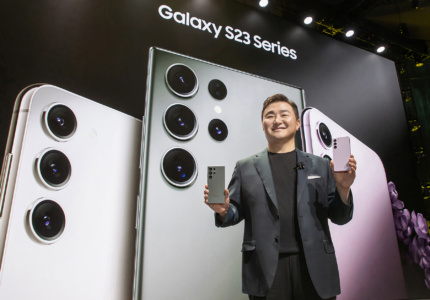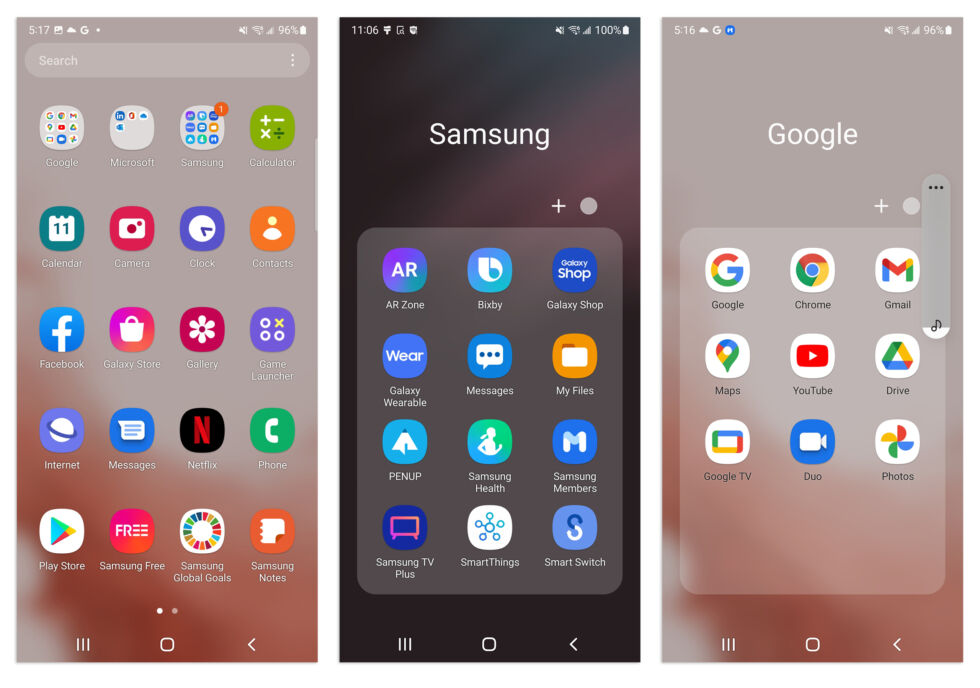
Initially, the Android operating system sought to be “light”. Its first version had to be squeezed into the T-Mobile G1 phone, the OS and all the built-in programs occupied only 256 MB. In the latest Samsung flagships, the operating system with programs in the initial state “devours” a significant 60 GB of memory for some users.
For comparison, 60GB is the size of two Windows 11 installations or four Pixel 7 Pro firmwares out of the box. If you have a Galaxy S23 smartphone with 128GB of built-in storage, the firmware will eat up half of it. Users should be sorry – the drive could be used to store their own files. What’s going on, Samsung?
There are several reasons. One of them is that the company wants to change everything in Android just for the sake of change, which is difficult to immediately call positive. Samsung creates the appearance of its own ecosystem, different from Google, for which it clones every app and every feature of “pure” Android. At the same time, the company is contractually obliged to install Google applications, so the end user receives versions of applications from Google and Samsung at the same time. It has two app stores, two browsers, two voice assistants, two text messaging apps, two keyboards, and so on. All of them are added to the system partition, most often without the possibility of removing them.

Unlike pure operating systems from Google or Apple, Samsung sells third-party companies the ability to embed their own applications into the OS. When a company buys space in Samsung’s system partition, it can gain more intrusive system permissions that are not granted to apps from the app store, allowing it to spy on users more effectively. Out of the box, you can find Facebook, Netflix, Microsoft Office, Spotify, Linkedin and many other software.
If you buy a phone from a carrier, as is widely practiced in the US, you get another set, the fourth (!), that is, all the programs of Verizon or another company. Taking into account all of the above, users who reported record “gluttony” accumulate the same 60 GB. Of course, the number of installed apps varies by region and carrier, and Samsung isn’t the only company to do this – but 60GB…seriously?
Samsung’s system partition looks worse compared to the 15GB the OS takes up on the Pixel 7, but that’s half the battle. Samsung doesn’t even use any of the more memory-hungry Android features you’d normally get in the Pixel 7: system partitions A, B, maybe more. The Pixel 7 (and most other flagships) can actually have two copies of the operating system, one connected to the network and in use, and the other offline and running in the background.
When downloading an OS update, a Samsung phone with a single copy of the OS will have to reboot, resulting in a 30-minute downtime. A Pixel phone with two copies of the OS will continue to run and update the second standalone OS in the background. Then, when the update is complete, it will simply reboot and the device will switch operating systems. The dual-OS system also gives the phone a backup. If this new, updated OS download fails, Android will revert to the old OS and retry the update.
System duplication works in Android since version 7.0, it is already seven years old, but Samsung is the only major OEM that does not use it (while still “devouring” more free space with the firmware than in versions with duplication). Google has threatened to make the feature mandatory several times in the past, but so far it hasn’t happened.
Of course, two copies of the OS will slightly increase the need for memory, but today it will require much less space for its operation. Previously, this function included the permanent storage of two full-fledged copies of the OS, but today, using virtual partitions, the device’s memory contains one full-fledged copy, and when an update comes, it creates another and then swaps them. After a successful download, the old copy is deleted.
Google has a detailed description of how this feature affects storage, and it lists the 4.5GB (!) required for the main OS (the Pixel’s extra space is for bundled Google apps), though the space used for this is typically doubles when upgrading, with compression it’s only an extra 2.1GB.
The congestion of Samsung’s operating system is unlikely to allow the company to implement such a feature. The system partition only grows over time, so 60GB out of the box is just the beginning. As always, Samsung is happy to add more memory to solve the problem. Galaxy S23 Ultra owners with up to 1 TB of storage will, of course, be less concerned about system garbage.
Source: Ron Amadeo, Ars Technica
The author of the adaptation has some experience in cleaning smartphones from previously unremoved garbage and unwanted activities – including the infamous Xiaomi and Samsung. Such operations really allow the smartphone to work much longer, while heating up less and using less disk space. The Android OS, which at first seemed like a breath of fresh air, has long since turned into the wrong place due to the efforts of manufacturers, gradually turning into a hotbed of surveillance and irrational consumption of system resources. At the same time, the system really works stably, quickly, conveniently and efficiently, much better than the first versions. But it could be even more effective.
Samsung Galaxy S23 vs Apple iPhone 14 – specs comparison chart




